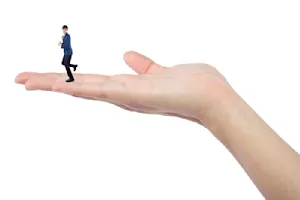What Makes This Word Tick
Taradiddle is a delightful word that dances around the truth. It usually refers to a fib or a small lie, often uttered with a wink and a nod. Think of it as the sort of tall tale a grandparent might spin just to see their grandkids' eyes widen.
If Taradiddle Were a Person…
Imagine Taradiddle as a charming yet mischievous storyteller, forever with a twinkle in the eye and a knack for weaving tales just a little too fantastic to be believed. This is the person you want at every dinner party, the one who can spin a yarn from the most mundane beginnings.
How This Word Has Changed Over Time
Originally used in the early 19th century, the meaning of taradiddle hasn’t strayed far from its roots. It's always had a playful, light-hearted connotation, describing fibs that are more playful than malicious.
Old Sayings and Proverbs That Use Taradiddle
While not featured in any ancient sayings, taradiddle could easily slip into lines like "He spins a yarn, but watch for the taradiddle!" It evokes the image of someone who takes creative liberties with the truth in a good-natured way.
Surprising Facts About Taradiddle
One charming tidbit about taradiddle is its mysterious origins. While it’s speculated to have emerged in Britain, its exact roots remain shrouded in delightful obscurity, perhaps fitting for a word that means "lie."
Out and About With This Word
Taradiddle might not be the common currency of today's conversations, but it does make appearances in British literature and discussions, offering a whimsical touch to any dialogue focused on honesty—or the lack thereof.
Pop Culture Moments Where Taradiddle Was Used
While taradiddle hasn't headlined any major pop culture moment, it feels like a word that belongs in the witty repartee of shows like "Downton Abbey" or "The Crown," where characters are often found navigating the delicate dance of truth and fiction.
The Word in Literature
Taradiddle can be found in various British novels, bringing a dialogue scene to life with its old-school charm. Imagine it popping up in a P.G. Wodehouse novel where characters are prone to delightful embellishments.
Moments in History with Taradiddle
Imagine the bustling salons of Victorian England: guests sipping tea while sharing stories. Taradiddle fits perfectly here, where the embellishment of one's adventures was a popular pastime.
This Word Around the World
While the word itself is distinctly English, its spirit is universal. Across cultures, you'll find equivalents—sometimes humorous, sometimes more sinister—that touch on the human proclivity for storytelling and exaggeration.
Where Does It Come From?
The origin of taradiddle is a bit of a mystery, much like the word itself. This is fitting for a word that embodies the idea of a tale told with embellishments, offering a tale of its own origins that might well be a taradiddle.
How People Misuse This Word
Taradiddle is sometimes used in place of outright lies, but true aficionados know it refers more to silly, harmless fibs rather than deceptions meant to mislead or harm.
Words It’s Often Confused With
Fib: Both mean small lies, but fib doesn't carry the same playful, old-fashioned charm.
Lie: A lie is more serious, while a taradiddle has a hint of whimsy to it.
Tall Tale: While similar, a tall tale is often grander and more entertaining.
Additional Synonyms and Antonyms
Synonyms for taradiddle include fib, tall tale, and falsehood, while antonyms would be truth, fact, and reality.
Want to Try It Out in a Sentence?
"His story about being a secret agent was just a taradiddle, but it was so entertaining that no one minded a bit."
















